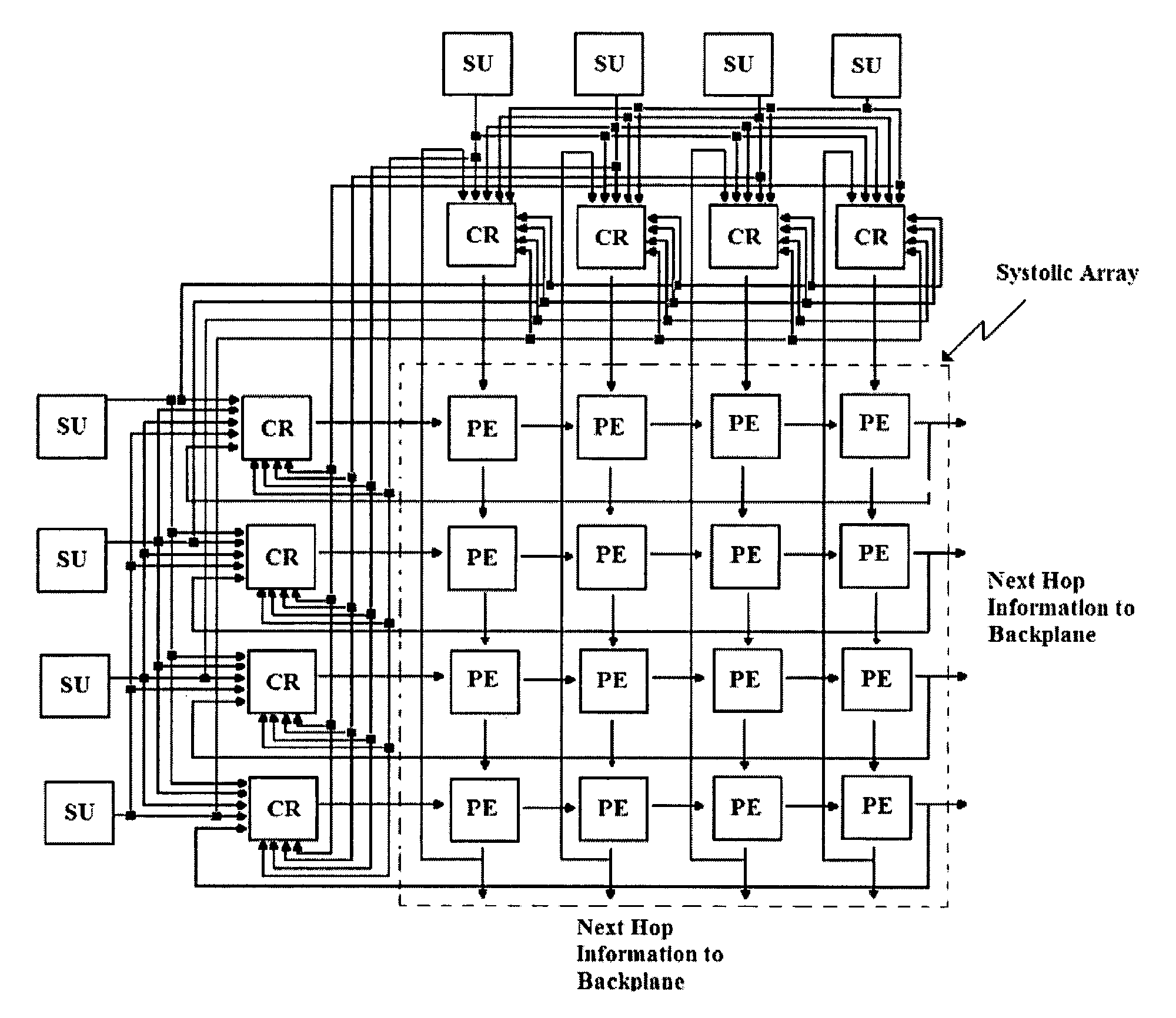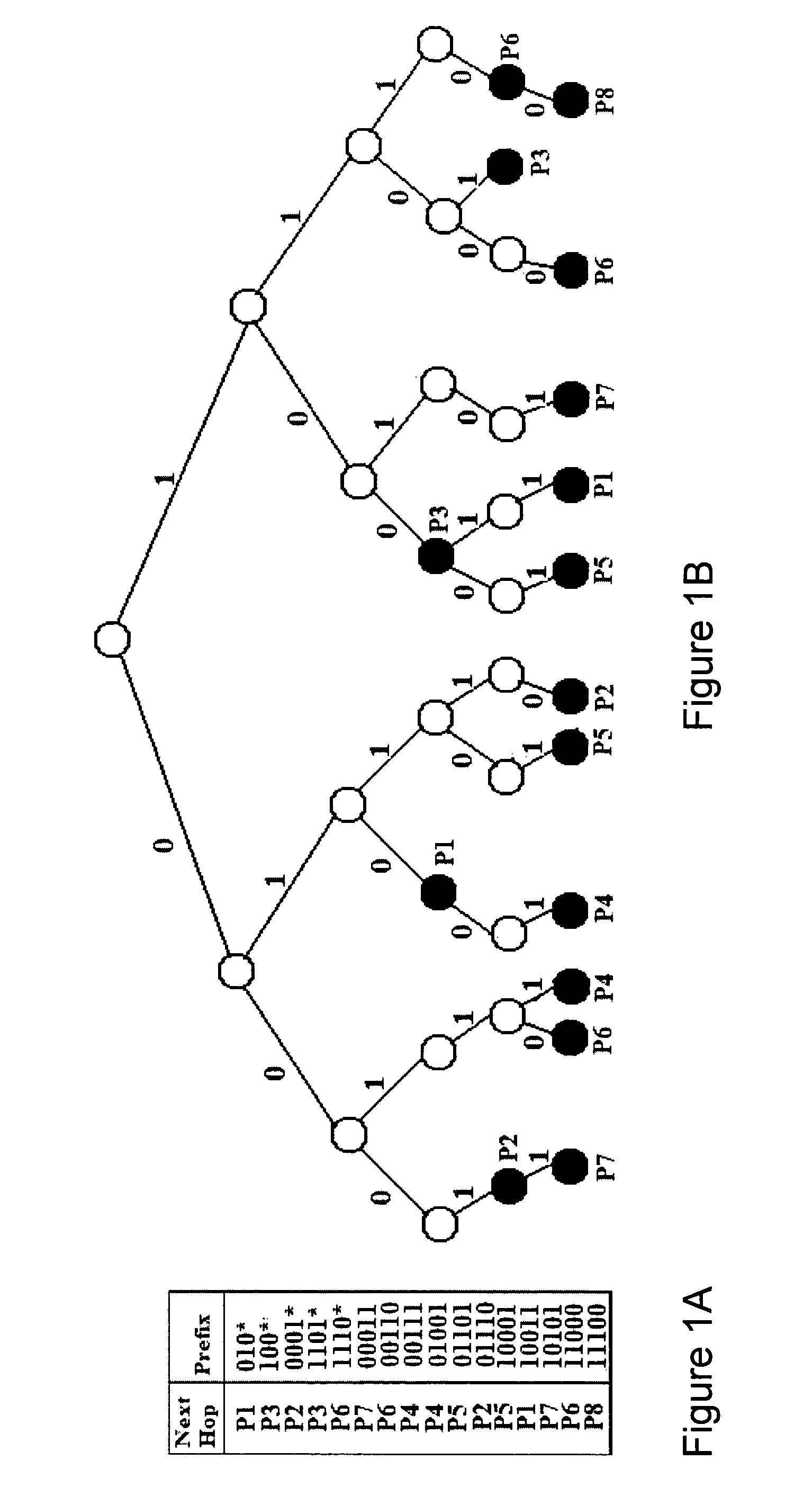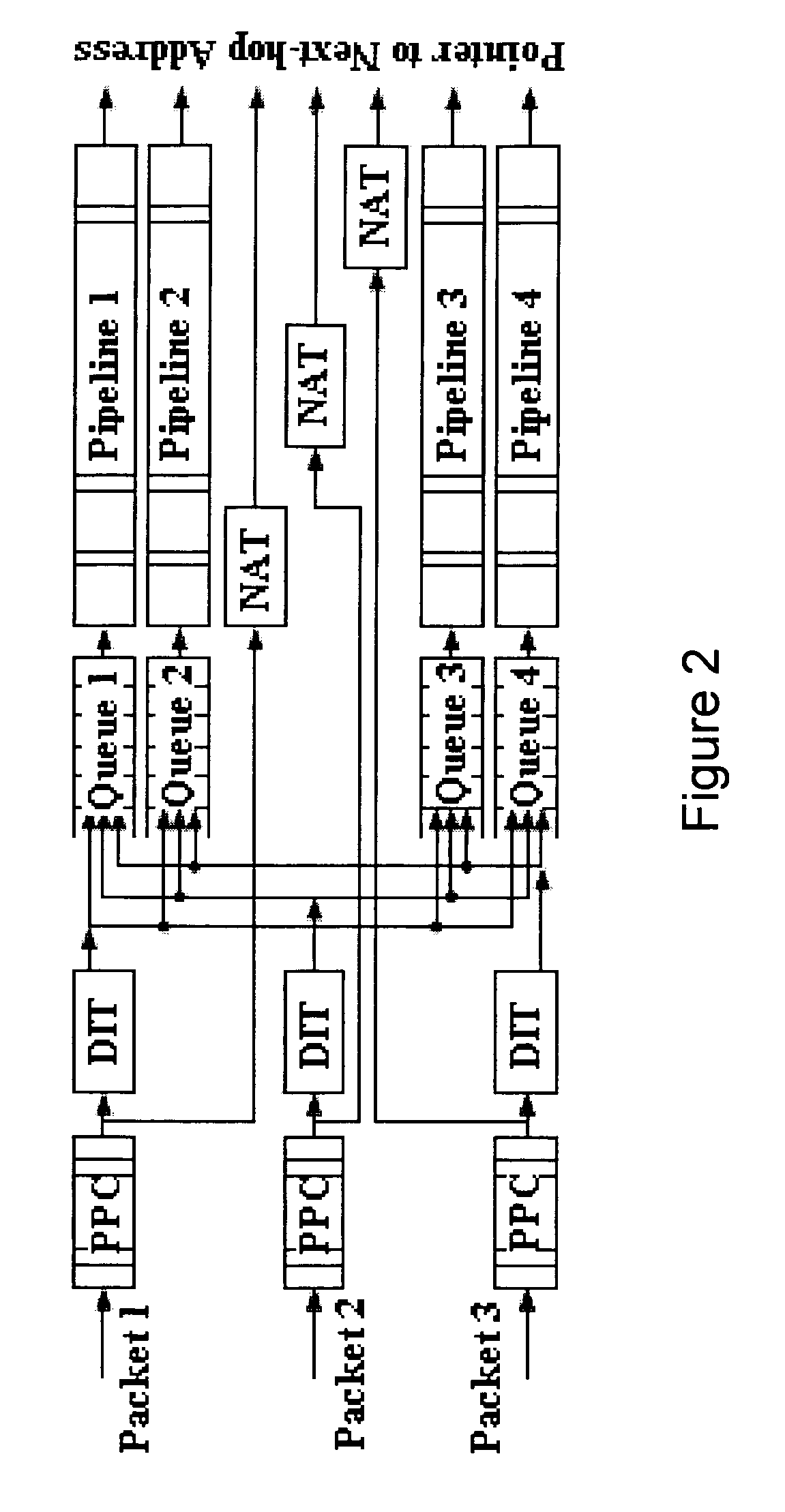Systolic array architecture for fast IP lookup
a technology of systolic array and lookup, applied in the direction of data switching by path configuration, digital transmission, data switching network, etc., can solve the problems of slowing down the growth of forwarding tables, high cost and high power consumption, and lpm is harder than finding the exact match, etc., to achieve high parallelism, search capability, and high performance.
- Summary
- Abstract
- Description
- Claims
- Application Information
AI Technical Summary
Benefits of technology
Problems solved by technology
Method used
Image
Examples
Embodiment Construction
Brief Description of the Figures
[0048]In order to explain the present invention in more detail, necessary figures have been prepared and attached to the description. The list and definition of the figures are given below.
[0049]FIG. 1A—illustrates an example of a prefix table.
[0050]FIG. 1B—illustrates an example of binary trie corresponding to prefix table in FIG. 1A.
[0051]FIG. 2—illustrates an example SRAM based parallel pipeline architecture.
[0052]FIG. 3—illustrates an example 4×4 systolic array.
[0053]FIG. 4—illustrates 4×4 SAAFFIL.
[0054]FIG. 5—illustrates processing Element (PE).
[0055]FIG. 6A—illustrates an example of initial partitioning.
[0056]FIG. 6B—illustrates an example of mapping of 01 subtrie.
[0057]FIG. 6C—illustrates zero skip clusters.
[0058]FIG. 7—illustrates a binomial spanning tree with 5-bit address space.
[0059]FIG. 8—illustrates an example of dual root partitioning of BT.
[0060]FIG. 9—illustrates FCNS representation of upper BT in FIG. 8.
[0061]FIG. 10—illustrates an IP...
PUM
 Login to View More
Login to View More Abstract
Description
Claims
Application Information
 Login to View More
Login to View More - R&D
- Intellectual Property
- Life Sciences
- Materials
- Tech Scout
- Unparalleled Data Quality
- Higher Quality Content
- 60% Fewer Hallucinations
Browse by: Latest US Patents, China's latest patents, Technical Efficacy Thesaurus, Application Domain, Technology Topic, Popular Technical Reports.
© 2025 PatSnap. All rights reserved.Legal|Privacy policy|Modern Slavery Act Transparency Statement|Sitemap|About US| Contact US: help@patsnap.com



